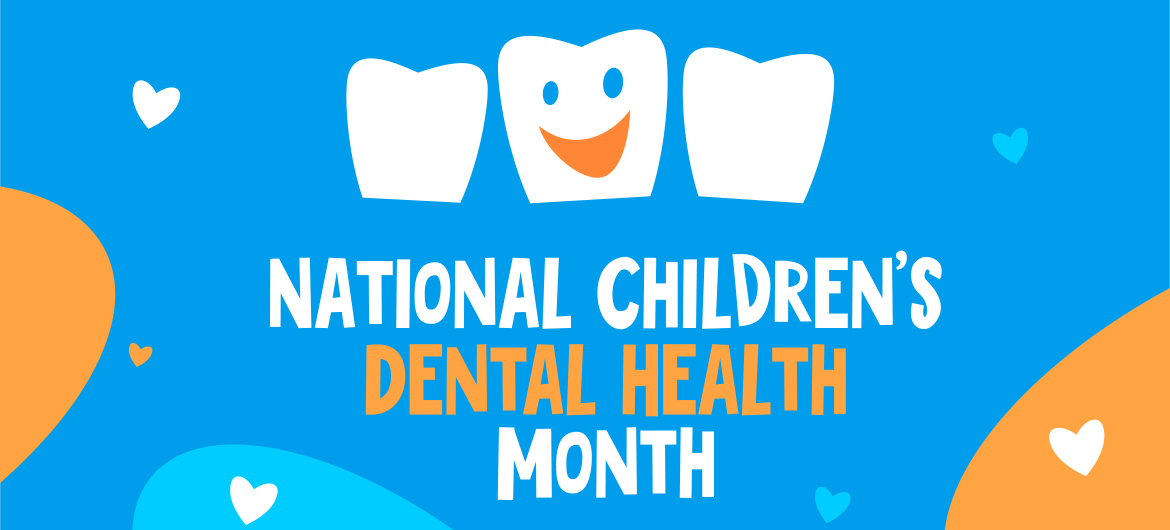Every February, the American Dental Association recognizes National Children’s Dental Health Month by educating patients and caregivers on the importance of proper oral health for children. Instilling good dental habits early, and regularly visiting the dentist puts adolescents on the right track for a lifetime of healthy teeth. It’s also a great time to raise awareness about safe and effective pain management options for pediatric patients who may be undergoing common dental procedures such as wisdom tooth removal.
Why is Dental Health Important?
According to the Mayo Clinic, cavities and tooth decay are one of the world’s most common health problems. Anyone who is developing teeth can get cavities or experience tooth decay. In fact, studies show about 20% of children aged five to 11 years old have at least one untreated decayed tooth. Poor oral health can also negatively impact your overall health as your mouth is a gateway to your digestive and respiratory tracts. Without proper oral care, bacteria buildup can lead to endocarditis, cardiovascular disease, pregnancy and birth complications, pneumonia, along with several other diseases.
Encouraging proper oral care early in life can help prevent complications later in life. Even though baby teeth will eventually fall out, dental health should begin once the first tooth grows in a child’s mouth.
How Can You Improve Your Child’s Dental Hygiene?
There are a few things parents and caregivers can do early on to improve children’s dental health and help set them up for a successful and healthy future:
- Brush Regularly: Brushing teeth twice a day can prevent plaque, gum disease, tooth decay, etc. Specifically, using a fluoride toothpaste can help protect your teeth from decay.
- Floss Daily: Flossing helps prevent gingivitis by removing stuck food and plaque, which can lead to tartar.
- Visit Your Dentist: While most patients should schedule a dental checkup twice a year, some patients may benefit from more frequent visits. Patients should be open with their dentist about their habits and hygiene to determine how often they should be seen.
- Follow A Healthy Diet: Diet and nutrition play an important role in dental health. Avoiding excess amounts of sugary foods and drinks can help prevent tooth decay.
- Ask Your Dentist About Wisdom Tooth Removal: Wisdom teeth typically come in during adolescence and, sometimes, they don’t have enough room to grow in properly, which can lead to complications and/or pain. Patients should discuss if wisdom tooth removal is right for them with their dentist or oral surgeon.
How To Prepare If Your Child Needs Oral Surgery
Each year approximately 5 million people in the United States have their wisdom teeth removed, many of whom are children. Opioids are routinely prescribed for the procedure, despite evidence that patients exposed to opioids for the first time after wisdom tooth extraction are nearly three times as likely to become a new persistent opioid user. With nearly 85% of young adults heading in to get their wisdom teeth removed, it is important for parents and caregivers to be aware that there are non-opioid pain management options available that can significantly decrease opioid-related side effects among this vulnerable patient population.
During dental procedures such as extractions and fillings, routine numbing medications are often used. For other more intensive oral surgeries, longer-acting versions of those medications can be used to control a patient’s pain for several days after their procedure. Utilizing a combination of over-the-counter medications, like acetaminophen and ibuprofen, along with long-lasting injectable numbing medications that are administered during surgery can reduce or, in some cases, eliminate the need for opioids and improve the overall recovery experience.
Prior to any oral surgery procedure, download a discussion guide to help you talk to your dentist or oral surgeon about a pain management plan that could include non-opioid options.
PP-NP-US-1274

